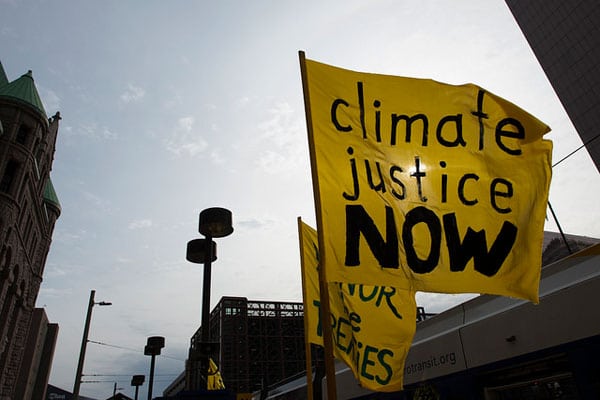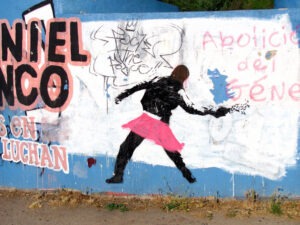
October 8, 2018; Sierra
A letter from Jade Begay and Dallas Goldtooth of the Indigenous Environmental Network in Sierra Magazine, the Sierra Club newsletter, acknowledges Indigenous Peoples Day, which will be celebrated in more than 80 (and counting) cities, counties, and states. But, say the authors, it is time to move the narrative along and to focus on the future of the movement and our world.
I have, in this newswire, mostly quoted from the original letter. Anyone searching for a way forward to honor both each other and the Earth should really read it in full. It starts powerfully:
As land defenders—people who are working for Indigenous territories to be protected from contamination and exploitation—we see Indigenous Peoples Day as progress; it signals a crucial shift in our culture to recognize the dark past of colonization. No longer are our communities, towns, cities, and states remaining silent and complacent in celebrating the cultural genocide that ensued after Christopher Columbus landed on Turtle Island (aka North America). Today also means that the erasure of our narrative as Indigenous Peoples is ending and our truths are rising to the surface. These truths include: Christopher Columbus was not a hero, he was a murderer. The land we all exist on is stolen. The history we’ve been taught is not accurate or complete. And perhaps most important among those truths, Indigenous lands are still being colonized, and our people are still suffering the trauma and impacts of colonization.
Sign up for our free newsletters
Subscribe to NPQ's newsletters to have our top stories delivered directly to your inbox.
By signing up, you agree to our privacy policy and terms of use, and to receive messages from NPQ and our partners.
The letter goes on to recognize the bravery and innovation of today’s activists as they bring forth healing and justice. “Through the tireless work of Indigenous organizers, activists, knowledge keepers, and artists,” they write, “we are learning about what is working and what our movements need more of to dismantle systems—like white supremacy and systemic racism—that colonization has imposed onto our communities.”
So while we could dive into the stories of how our people are still being attacked by the many forms of colonization, we find it important on this day, a day that symbolizes progress and evolution, to acknowledge what is working in our communities and in our movements. All too often, our people are framed as victims, and while there’s truth in those narratives, it’s also critical, for our self-actualization as Indigenous Peoples, to have our strengths, our resilience, and our creativity seen and honored.
The authors then highlight three frameworks that are rendering indigenous movements “stronger, inclusive, and transformative.” They are:
- Be intersectional: “Resource extraction, poverty, racism, and an extremely flawed justice system are all compounding causes that must be seen as parts of a system that needs to be dismantled.”
- Embrace Indigenous feminism: “If we are to truly make progress toward building a more just and sustainable society, then we must center an Indigenous feminist framework in our practices.”
- Disrupt the status quo/Change the story: “In this current world, it is a story of white supremacy that dominates. In this story, imperialism is necessary, resource extraction is compulsory, capitalism is inevitable, blackness is demonized, and Indigenous territories must be settled and colonized. Why? Because, the story of white supremacy must be self-fulfilling. Any alternative narratives, such as inherent rights, Indigenous nationhood, and local sustainable economies must be diminished or erased. In this context, we as Indigenous peoples are not meant to exist; we are not meant to have made it this long in the eyes of settler colonialism. As such, simply asserting ourselves in the present and placing ourselves in the future are tremendous acts of defiance to the status quo.”
As we mentioned at the beginning, we recommend that all of our readers go to the original letter to get the full, beautifully supported impact of this reminder of the meaning and need for our work as activists. It contains the energy and focus and story that we all need to act on—not just today, but all of the days of the year.—Ruth McCambridge













